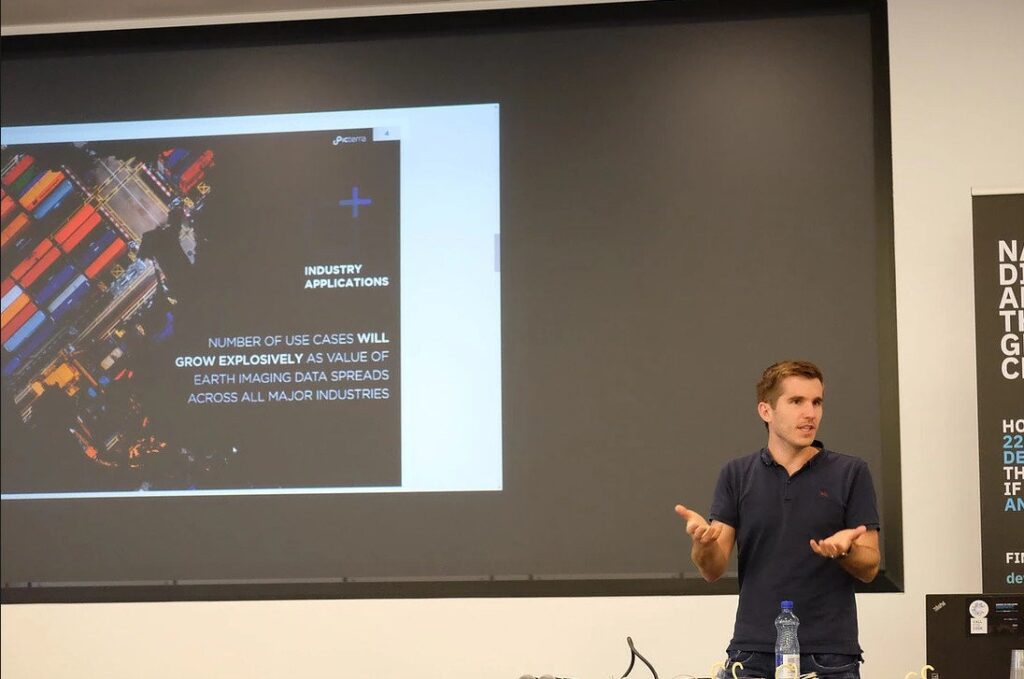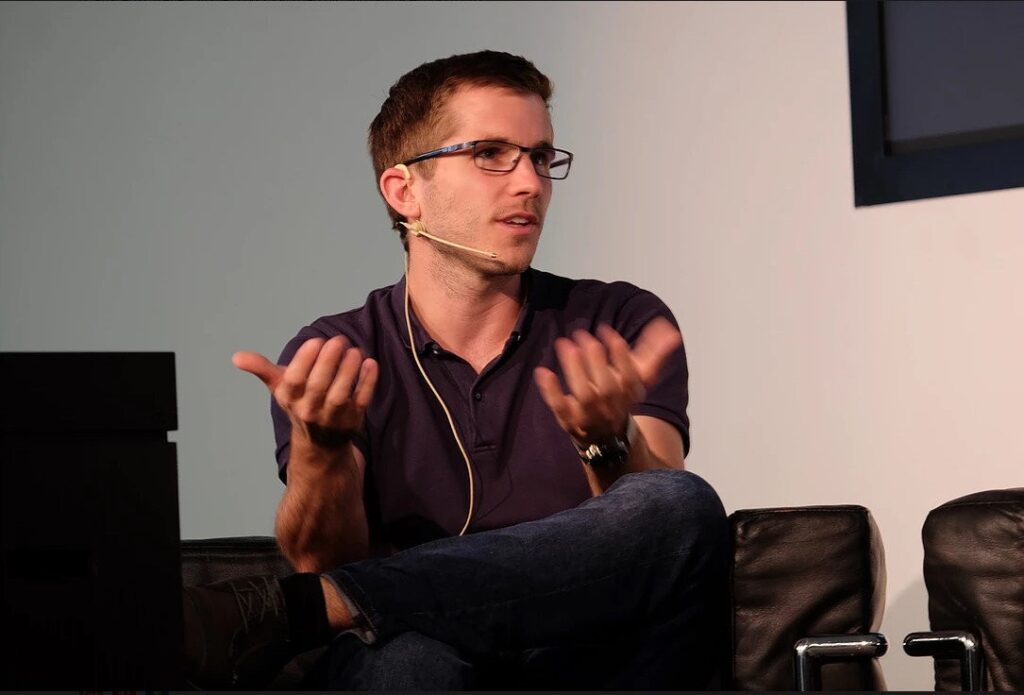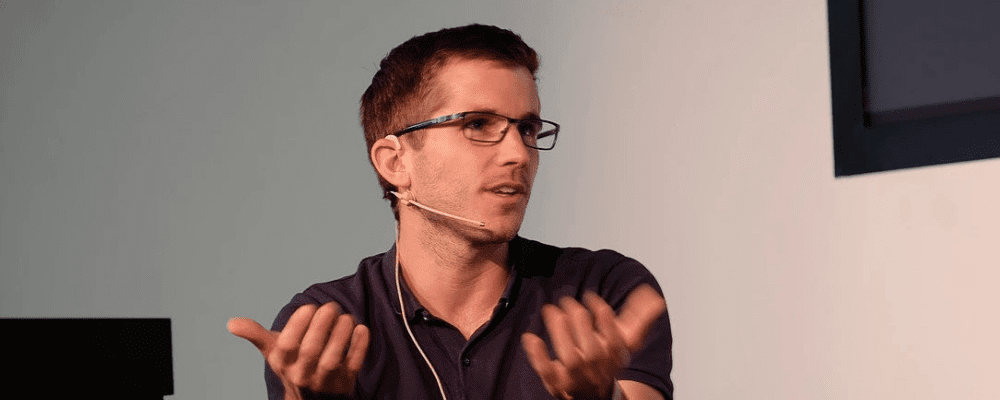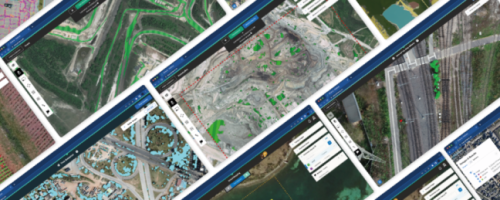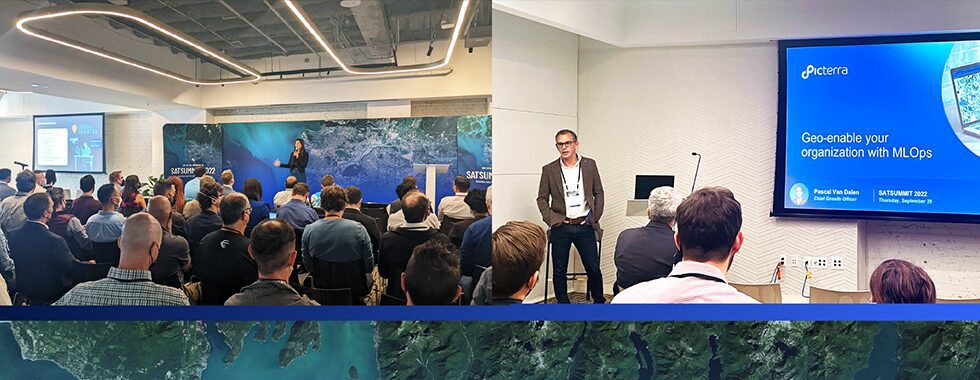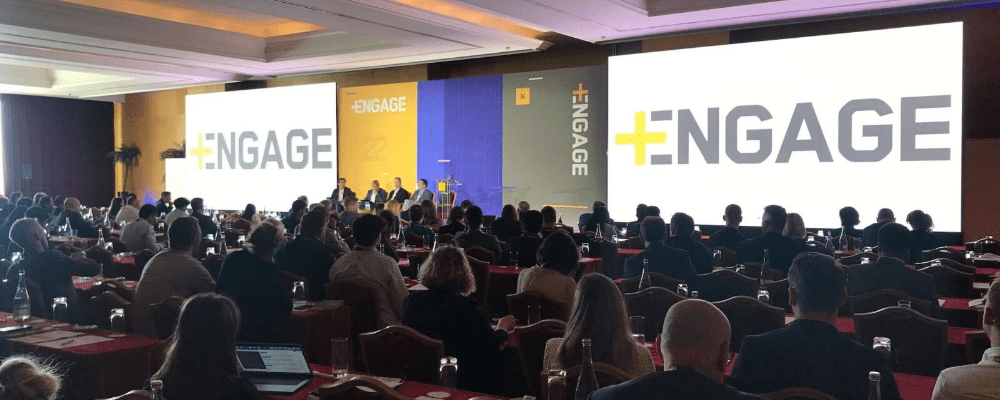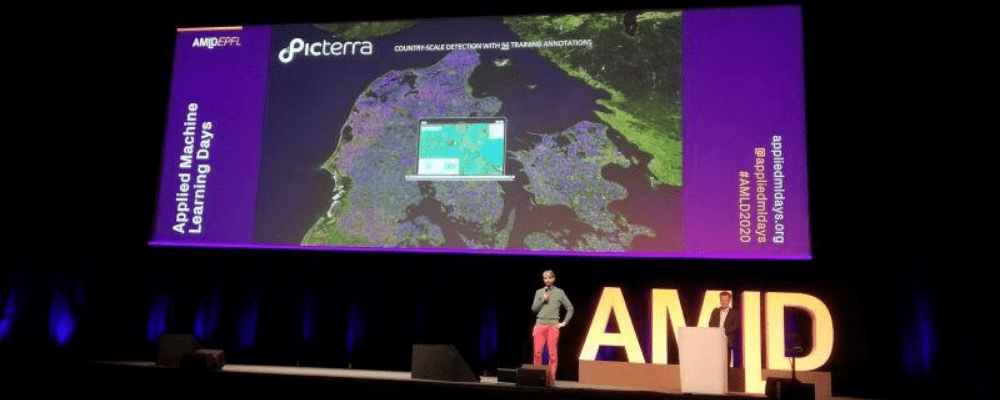On Monday the 28th of May, Picterra was at IBM Zurich to participate in the Opentech AI Workshop. The workshop was a full-day event with various sessions ranging from technical to higher level discussions about how various industries are using AI and Machine Learning to improve their business. We participated in both an afternoon panel discussion and an evening spotlight presentation of Picterra.
Afternoon talks
Babak Falsafi presented the latest about deep neural network quantization to reduce from 32-bit IEEE floating-point to 8-bit custom floating point, leading to a massive performance increase. In particular, he mentioned the idea of having all the elements of a tensor share the same exponent.
Parquery presented their parking monitoring solution which consists of a webcam and then some image processing (and a deep neural net) to classify parking spots as free/occupied. They can also detect people squatting a parking spot by renewing their ticket without moving their car. So beware next time you do that ?
René Pfitzner from Neue Zürcher Zeitung (NZZ) presented how they use ‘article vector’ to do article recommendations at NZZ. This is a generalization of ‘word vectors’ (word2vec) to whole articles.
The CVLab from EPFL had three presentations! One really interesting one was about using a YOLO-like network to do 6DOF object tracking by predicting the 2D projection of the object’s 3D bounding box.
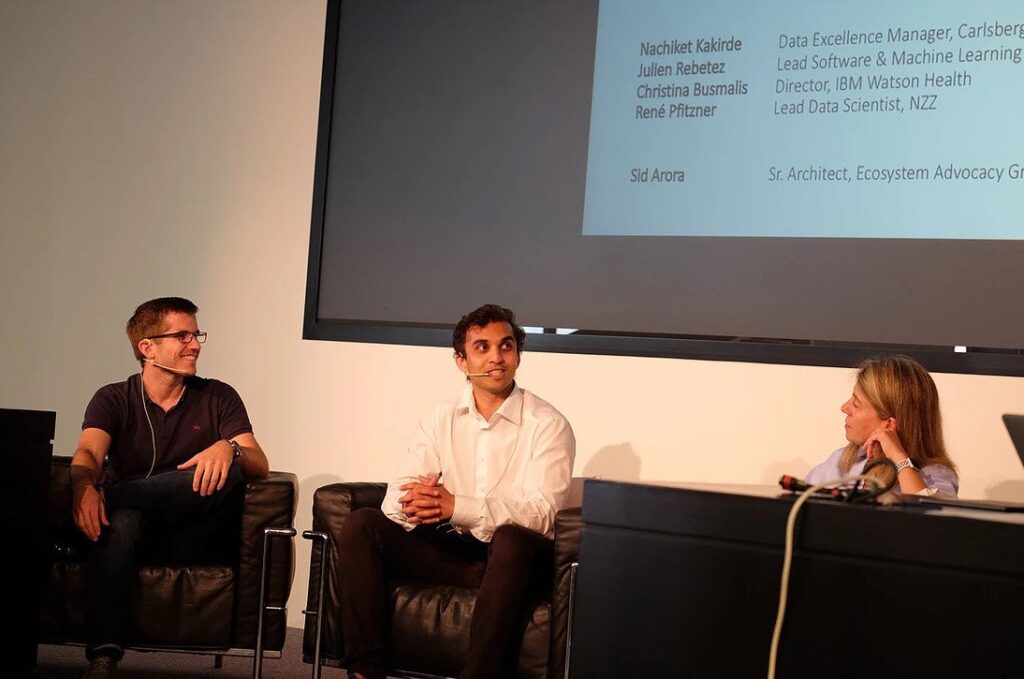
Picterra presence
After those talks (and others), we participated in a panel discussing AI in the industry with Christina Busmalis (IBM Watson Health), Nachiket Kakirde (Carlsberg), René Pfitzner (NZZ) and led by Siddhartha Arora (IBM).
We discussed the challenge of getting quality labelled data, models ownership and copyright, privacy aspects of AI and the problem of dealing with bias.
At Picterra, our vision is to build user-sourced Deep Learning models in a way that multiple users working on different use cases can allow to build better models for everyone. For this to work, this requires having users agree to share their labels. A takeaway from the panel was that incentivizing this sharing using different pricing levels – the more you share the less you pay – is one way to go.
Another aspect of Picterra’s vision is that we want to build interactive Machine Learning tools – of which our newly released “Smart Focus” is the first example. The goal of those tools is to simplify the users’ lives and make annotating large datasets much faster. One thing that needs to be taken into account when building those tools is the problem of bias. If the user annotates few examples of a class and he should not get propositions of new examples that are close to what he annotated, this might build a model that is stuck on this particular subset of the class. Instead, our tools need to explore the “margin” of the class, yielding more robust models.
In the evening, we presented Picterra’s platform and vision of building user-sourced AI for remote sensing imagery. The focus was on how our platform will allow small to large businesses to leverage the recent improvements in remote sensing – be it in costs, frequency or resolution – to extract relevant information. A recording of the talk is available on youtube.
Our next event will be the GeoSummit 2018, June 6 & 7 in Bern. See you there!
